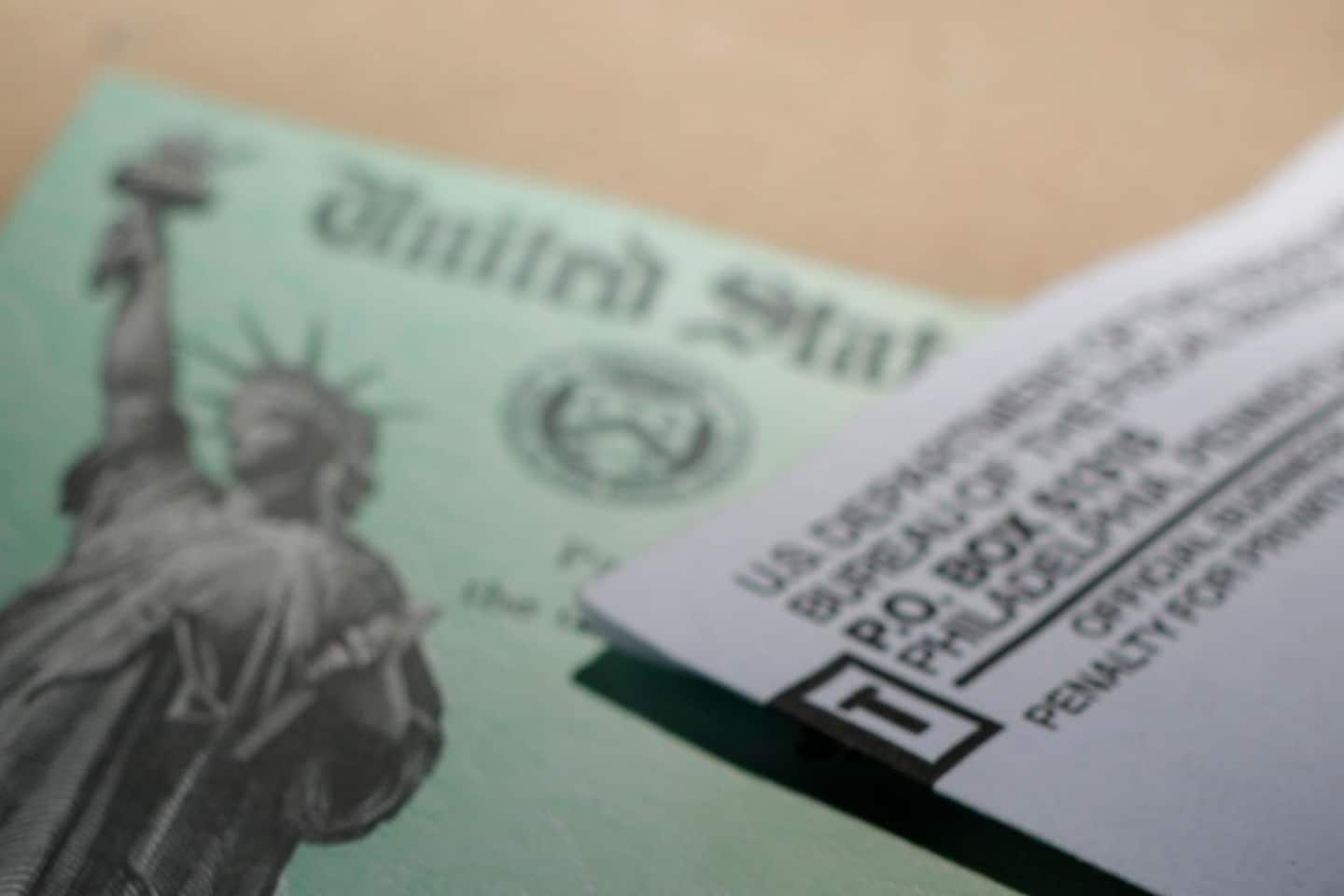IRS mistakenly tells tens of thousands of taxpayers they won’t get their stimulus payments

“It’s very disheartening,” National Taxpayer Advocate Erin M. Collins said in an interview. “I know that the IRS has its struggles, and we are all trying to be patient because of the pandemic. But at the same time, these are things that just shouldn’t be happening.”
This error stems from the IRS’s implementation of two sets of stimulus payments. The Coronavirus Aid, Relief and Economic Security Act, or Cares Act, which passed in the spring, authorized payments of up to $1,200 for individuals and $2,400 for couples filing jointly, based on 2018 or 2019 federal returns. The Cares Act required the IRS to deliver the first round of stimulus payments by Dec. 31.
The more recent Coronavirus Response and Relief Supplemental Appropriations Act, passed at the end of December, called for additional stimulus payments of up to $600 per adult ($1,200 for couples).
The payments were an advance against a tax credit referred to on the 2020 1040 Form as a “Recovery Rebate Credit.” The advanced payments were eligible to be paid in two rounds during 2020 and early 2021. Congress set deadlines for the IRS to get the payments out.
Facing a backlog of 2019 returns, the IRS sent out the CP21C notice to inform people they would have to wait until they filed their 2020 return to receive the relief, because the agency failed to meet the Dec. 31 deadline. The erroneous notices are another example of the consequences of the agency’s antiquated technology, Collins said in a blog post.
In some cases, the IRS notice stated, “we applied a credit to your 2007 tax account due to new legislation. We used (offset) all or part of your economic stimulus payment to pay your federal tax as the law allows.”
IRS computer systems may have mistakenly reissued letters from the last time Congress authorized stimulus-payment offsets, during the Great Recession, Collins said.
What will be even more confusing is that some of the taxpayers may eventually have all or part of their stimulus payments seized, unlike those taxpayers whose payments have already been processed. The IRS may reduce refunds, including the portion attributable to refundable credits, to satisfy past-due federal tax debt.
There were several posts in an American Bar Association email group for tax clinics about clients getting notices that their stimulus payments were being offset, said former taxpayer advocate Nina Olson, who is now executive director of the Center for Taxpayer Rights.
“You have letters going out referencing some tax year that taxpayers may not even have a liability for,” Olson said. “To me, this just makes the point that if we’re going to use the IRS to process payments like this, then we need to set up a separate system that runs concurrent with the tax filing system.”
Brette Gollihare, the director of the Low Income Taxpayer Clinic at Legal Aid Services of Oklahoma, said she heard from a client in the state who received the IRS letter stating that her stimulus payment had been applied to past-due tax debt from 2007. The client doesn’t owe back taxes.
“This client ended up getting her $600, the second stimulus payment, a couple of days later, which kind of caught us off guard,” Gollihare said. But the client did not get the first stimulus payment of $1,200 and will have to claim it on her 2020 return.
In a mea culpa posted at irs.gov on a Q&A page, the IRS says of the CP21C letter: “This notice is not accurate for anyone who received it. Since no payment was issued, no offsets occurred. We apologize for the confusion this may have caused. You can disregard the notice.”
I assume the IRS thinks regular taxpayers are frequently trolling its website and are likely to see the apology. Based on my experience, they will not.
The posting online isn’t enough, and telling people to call the agency will send them into a telephone system ill-equipped to handle the calls it is already receiving.
Collins is urging the IRS to mail another letter directly, informing people that the information in the notice is wrong.
The letter that went out last month was just supposed to say the IRS couldn’t issue the first economic impact payment, because of a delay in processing 2019 returns.
But many people who will have to claim the stimulus credit on their 2020 return will be upset to learn that Congress has authorized the IRS to offset the first and second stimulus payments for unpaid federal taxes and certain other debts they may have. Under the Cares Act, the IRS could offset the stimulus payment only for back child support. In the second round of payments, there were no offsets of any kind. But that applies only to people who get the money before they file their 2020 return.
“It’s frustrating because a lot of people didn’t get their advance payment, some of them because the IRS didn’t get their returns processed because they’re so far behind in processing returns,” Gollihare said.
This latest glitch comes just as the IRS announced the creation of a new position, the chief taxpayer experience officer, as part of the implementation of the 2019 Taxpayer First Act.
“This position is designed to ensure the views and experiences of taxpayers and their professional representatives are factored into all aspects of IRS operations,” IRS Commissioner Chuck Rettig said in an announcement. “While taxpayer service has always been a priority for the IRS, we can do more.”
Well, yeah.






